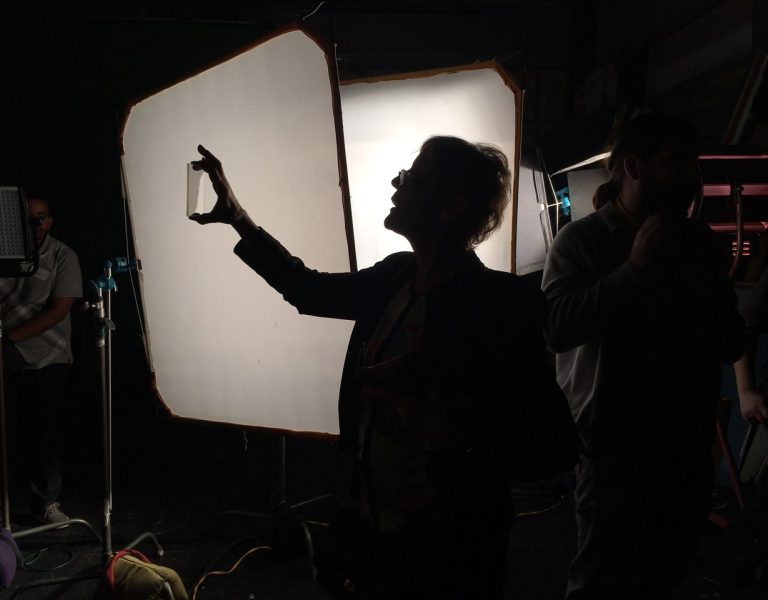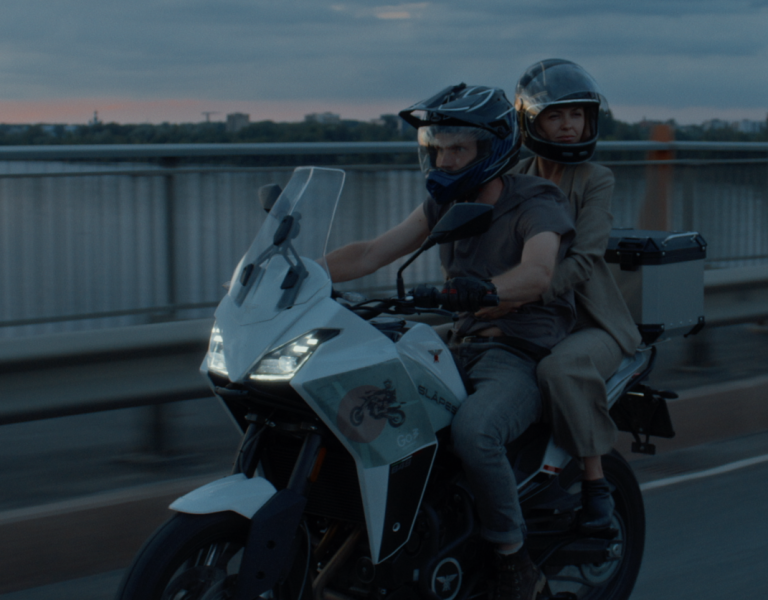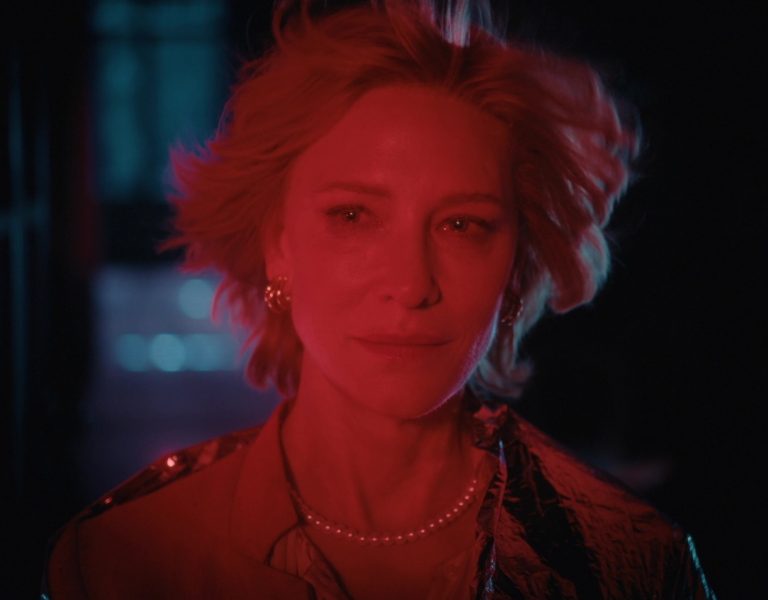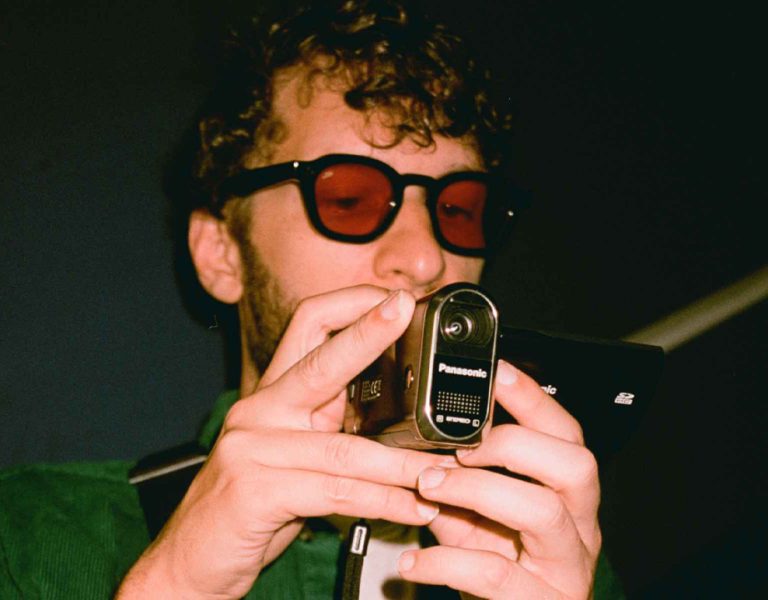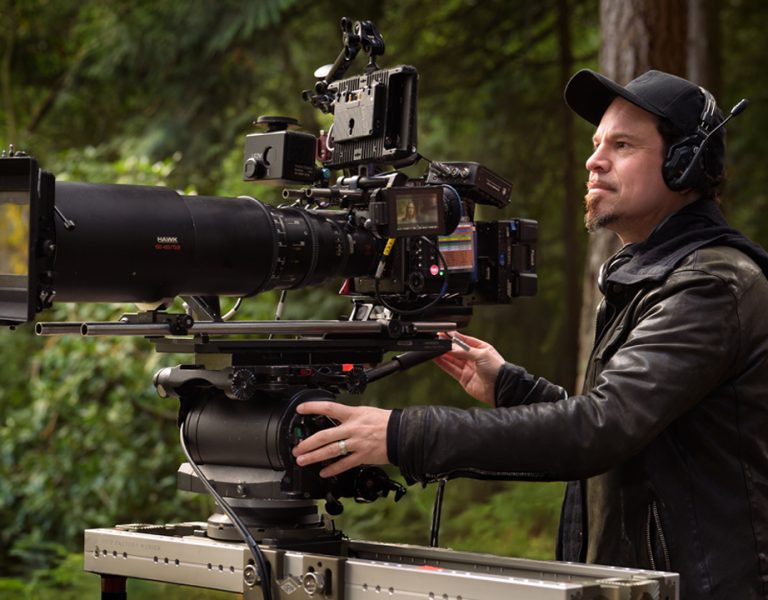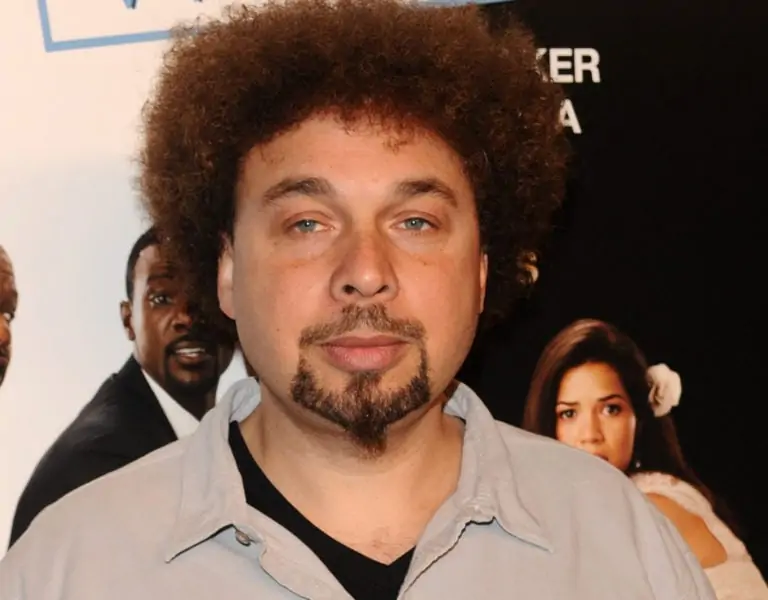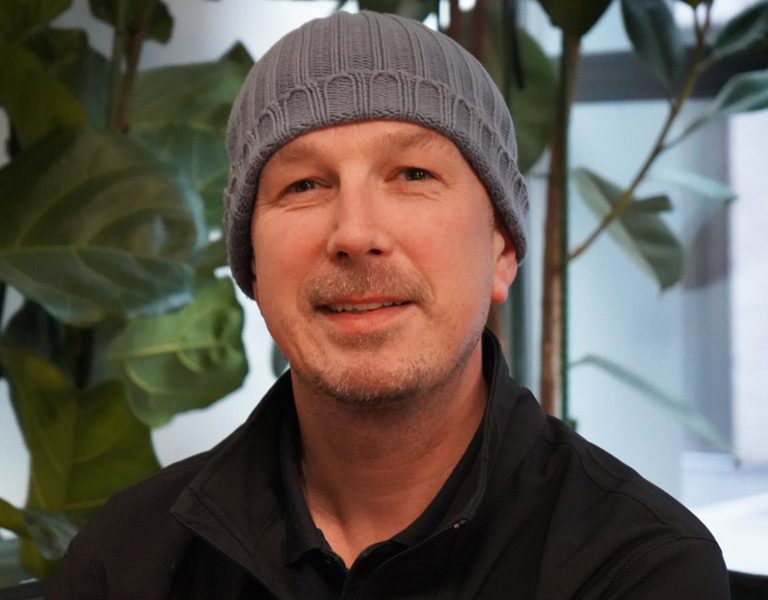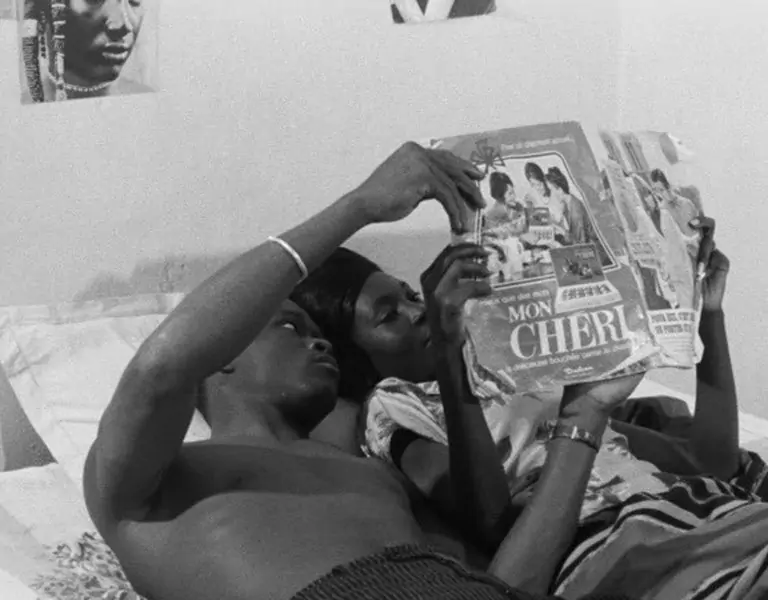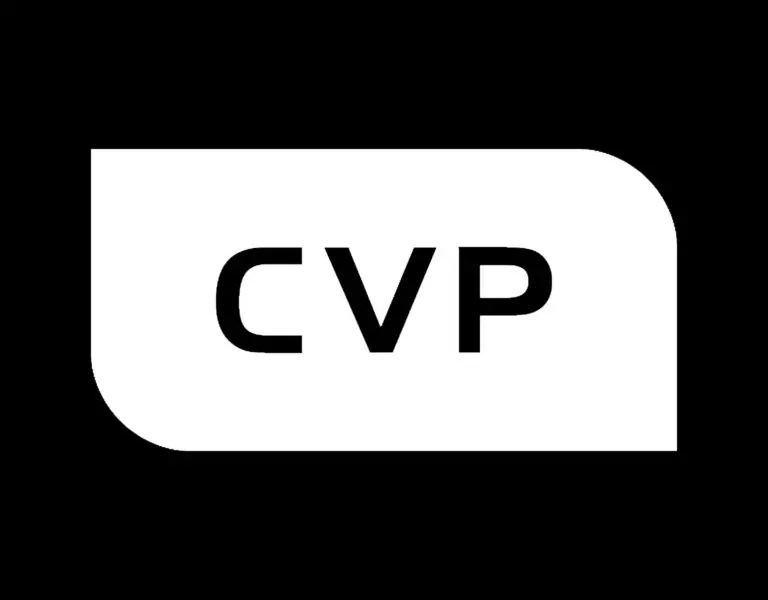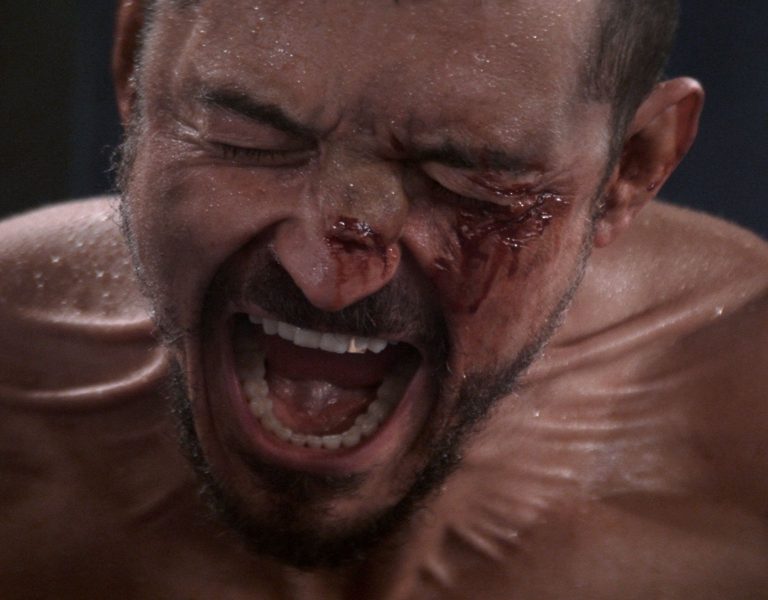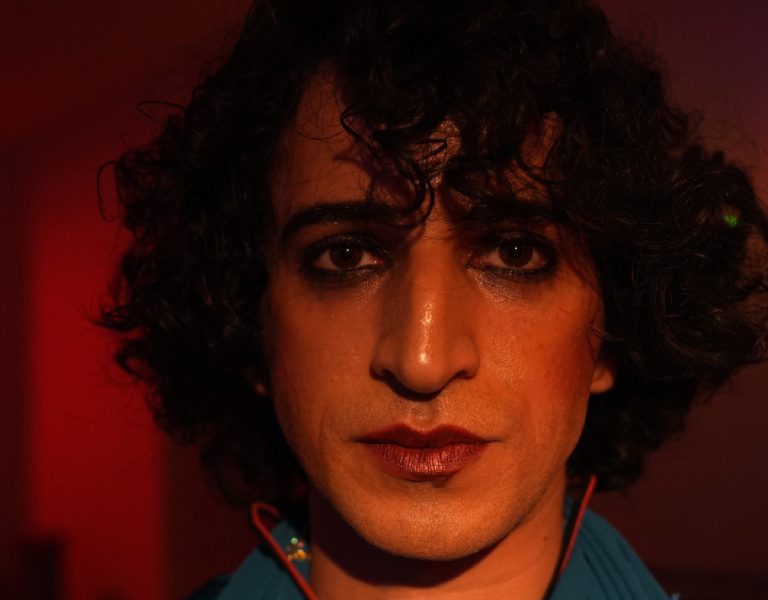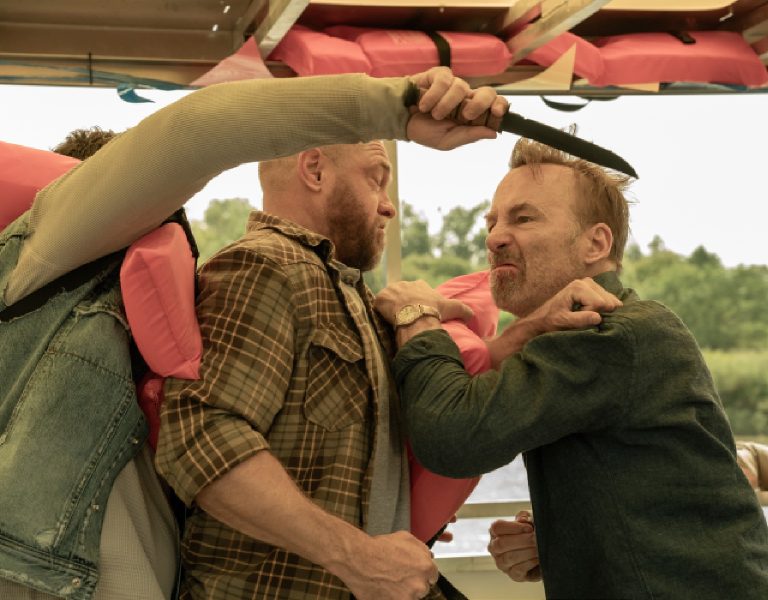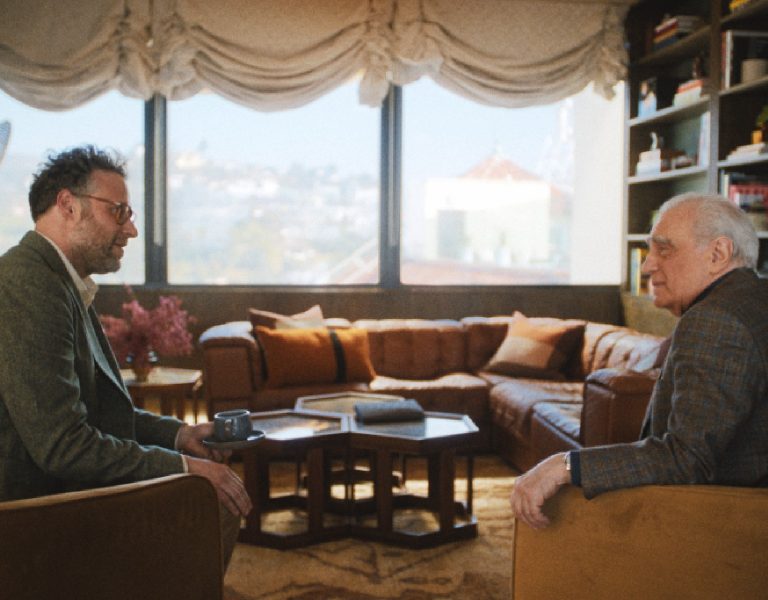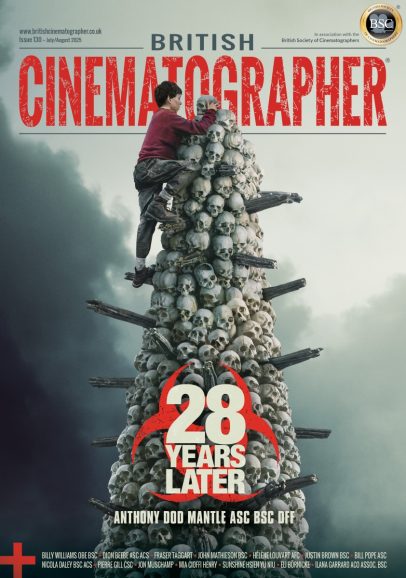Home » Features » Interviews »
Black Britain Unspoken (BBU), part of Warner Bros. Discovery Access, aims to give access and voice to talented Black British creatives and storytellers. BBU offers three filmmakers a pitch to production which supports them to develop, produce and launch their own short unscripted film on discovery+ during Black History Month. In its second year, the programme was delivered in partnership with Media Trust, who provided professional development and tailored workshops, and Bounce Cinema who provided the filmmakers with mentorship and production support.
Industry data demonstrates that Black people remain particularly underrepresented across director, writer and producer roles in the UK, and it is through targeted programmes that we can begin to showcase the diverse stories that deserve and need to be told.
Meet the Black Britain Unspoken 2023 filmmakers
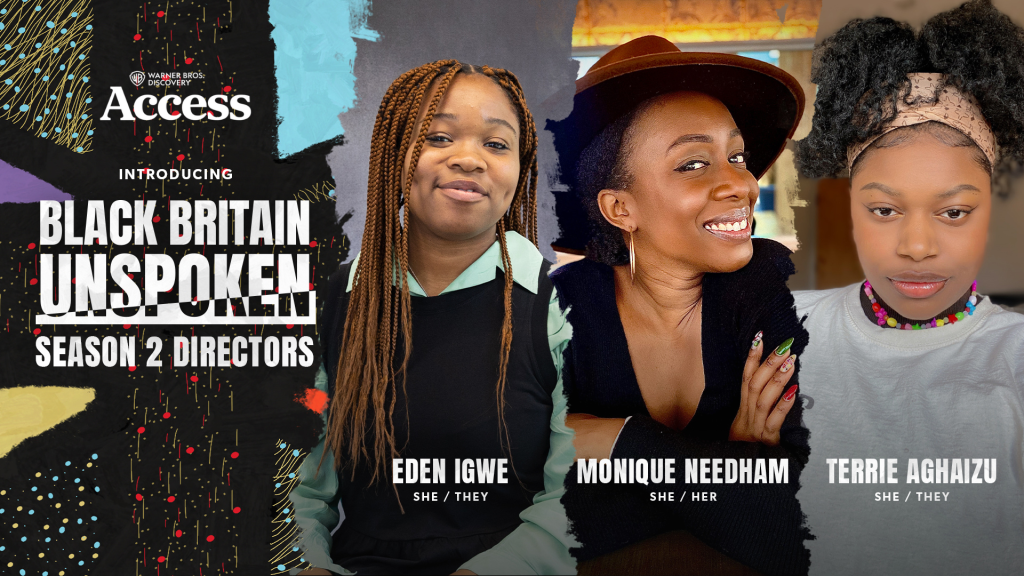
Eden Igwe is an emerging writer and film director of fiction and non-fiction work. Her afrosurrealist short film Be On My Side was screened at an independent film festival, and her poetry film ‘passage’ was showcased by UK distributor TAPE Collective on their online platform. Eden’s film with Warner Bros. Discovery in partnership with Bounce Cinemas centres on the ingenuity of gospel rhythms, speaking to musicians with histories of playing the drums in black churches in the UK.
Monique Needham is a Jamaican-British writer and director, born and raised in London. She is passionate about broadening the type of stories told about her community. She has created two short films since 2019, Cashpoint (2019) and Mum Me (2020), which have been shown and commended at film festivals globally. More recently she made a concept trailer and won full funding from M&Ms for her short film Sunday Dinner (2023) which won the M&M’s FUNd Award. Her films cover family and culture with a comedic twist and showcase their lives and bonds. When not creating narrative films, she enjoys experimenting with ideas and shares them for everyone to enjoy.
Terrie Aghaizu is a creative mainly working in narrative short films and TV dramas. They have recently worked on the upcoming season Slow Horses for Apple TV+. Terrie’s film for Black Britain Unspoken took the form of a short documentary exploring the alt/punk/grunge identity through the lens of black people in the subculture.
British Cinematographer (BC): Can you tell us about your film and why you wanted to make it?
Monique Needham (MN): Food, Music & Vibes is an invitation to a Black British Caribbean House Party. The film explores the nostalgic experience of the house party tradition; cross-generational and filled with delicious food, good music and a great sense of togetherness. Food, Music & Vibes will go much deeper into the unspoken tradition, reminding viewers that “we enjoy because they endured”, journeying all the way to the origins of house parties, explaining how previous generations turned hardship into joy.
I recognise the journey that my parents and grandparents took and don’t take for granted that their experiences and what they went through have enabled my generation to enjoy what we do without enduring the negative things they experienced. I wanted to honour this by bringing their stories to the screen, highlighting their influence not just on their children but also British society. It’s not often we get to see the social life of these generations, which is why I focused on these eras and used archived materials to represent that time.
Terrie Aghaizu (TA): Alterior breaks the conventionalised idea of what it means to be Black, by introducing viewers to the alternative Black British experience. The film celebrates black alternative voices in a society that often limits and puts them in a box. It amplifies important issues such as exploring one’s own identity, the safety of Black people in this subculture, and the significant role of finding connections within and outside the community.
I felt like the prevailing perceptions of Black individuals often overshadow those who don’t align with mainstream representations, even within the Black community. We are not a monolith, we can be so many things and honestly – no two people are the same. I wanted to amplify, elevate and celebrate alternative Black voices whilst also looking beyond the aesthetic. Being surrounded by people with alternate opinions who challenge societal norms, I felt compelled to amplify these voices and share this story.
Eden Igwe (EI): Beats From Heaven documents gospel drumming. It explores how Black British people have fostered innovative music shaped by their own communities, ultimately influencing broader music culture in the UK. It celebrates Black creativity and how Black churches offer a formative musical environment unlike any other, featuring 2023 Mercury Award winner Femi Koleoso from Ezra Collective. I believe documentaries are powerful ways of capturing phenomena for years to come, and I aimed to do just that, shedding light on a subject often overlooked in music documentaries. This was a topic that I was really interested in, especially as a drummer myself.
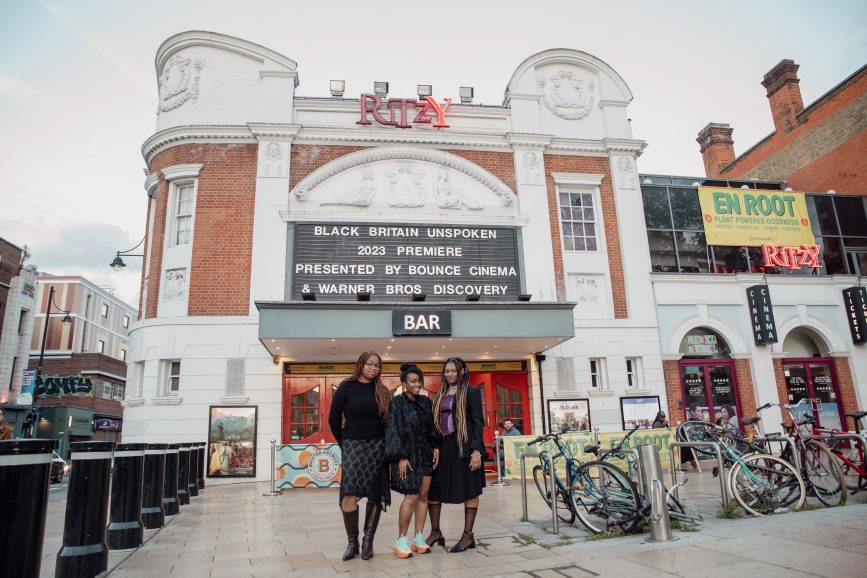
BC: Why did you want to put yourself forward for Black Britain Unspoken?
MN: To be honest, I didn’t think I would be able to do this, especially as I’ve never made a documentary before. Initially, I hadn’t planned to apply, but my mentor encouraged me to do so and I’m so glad I did. On reflection, I’m still amazed how I not only got the chance to pitch, but also managed to turn my idea into a film. The experience has certainly taught me to stop doubting myself.
TA: I recognised Black British Unspoken as an initiative that gives diverse Black filmmakers a platform to be able to tell their version of a Black British experience. As the name suggests, many Black voices remain unheard within the industry. It was important for me to share this story of an alternative Black experience on such a high-profile platform. Personally, I haven’t come across any documentary or short-film content that explores the alt, goth, punk Black identity in the UK, either as individual experiences or as a community.
EI: I’ve known for a while that I want to create and direct films. However, with no access to physical budgets, I’ve had little insight into how the process works in a professional context. I put myself forward for BBU as I wanted to gain both confidence and experience in what I hope to do for the rest of my life: telling stories through moving image.
BC: Tell us about how the pitching process went for you. What were the most enjoyable and/or challenging parts?
MN: There were so many great ideas on pitch day! I remember waiting for the email which told us whether or not our pitch had been successful, I was constantly refreshing my inbox hoping to see a message from Warner Bros. Discovery. There was so much joy and surprise when I finally got the email through.
TA: I was certainly nervous when preparing for my pitch, however when I walked into the room on pitch day, I gained a newfound level of confidence which came out of nowhere! It was my first-ever pitch, and I must have done something right to secure a winning pitch and get the film commissioned. Understanding your story and your ‘why’ really plays a huge part.
EI: At first, the idea of pitching felt daunting, particularly since I had never experienced it before, but ultimately it was incredibly fulfilling, regardless of the result. I was extremely nervous beforehand, but I convinced myself to approach it as if it was my final opportunity to express my concept. I just wanted to do my idea justice! The most challenging part was trying not to overthink beforehand. I remember having to take a walk around the Warner Bros. Discovery offices with the program coordinator Gloria before even entering the pitch room.

BC: What was your collaboration like with Bounce Cinema?
MN: It was a relief to have an external team handle the production aspects this time. Previously, I’ve often found myself juggling multiple roles, especially as both the director and a producer, which can be incredibly stressful. Bounce Cinema took control of the budget and logistics, which allowed me to focus on the creative side and I am so grateful to the team for that.
TA: Collaborating with Bounce Cinema and other involved teams has certainly been a learning experience. Previously, when I was the creative lead, it has only involved a small team of four, so this felt entirely new. It was initially a bit daunting, but the support from Bounce and WBD was reassuring, especially when I needed guidance on the next steps. Working with different collaborators was nice as it provided a sense of creative structure and enabled me to work with department heads – sometimes it felt a little overwhelming but in a good way!
EI: Bounce Cinema was an attentive and diligent production partner. The team’s approach meant I was as worry-free as possible, as all aspects of production were taken care of, I only had to think about the creative choices. It was also awesome to work with Black producers as they understood the film topic, they also had ample connections to relevant locations and contributors which was great!
BC: What were your favourite parts of the process?
MN: I was so nervous in the build-up to my pitch, but it felt so freeing to sell my idea on my own terms and style. Before the shoot I was super nervous, but the day itself was so much fun. The team we had was great and I had actually worked with some of them before, so it definitely made me feel more relaxed. It was great seeing the team bring my ideas to life!
TA: It’s hard to choose my favourite part! I think the process of talking to my contributors and engaging with them in such an intimate way to ensure I told their story correctly is definitely up there. I worked very closely with my editor throughout the post-production process to piece my story together, this was very interesting as otherwise the structure of the film could have been very different. I think the feedback I received post-production also helped me a lot. It helped me understand what I needed to get out of the story and what we could do without.
EI: A huge highlight was the shoot day where we recorded the contributor interviews. Working with an experienced team in such a beautiful studio setting filled me with so much joy. Every time I looked at the monitor, I saw the magic of months of work coming together. It’s an awesome feeling that I don’t think I could compare to any other experience! Working with such talented and patient creatives, from my cinematographer Henry Gill to my editor Jared Onyeka, was also amazing as they were so great at translating my requests, particularly as I’m still learning the language of film!

BC: What lessons did you learn from the process?
MN: It was definitely a learning on the job situation! I haven’t done a documentary before as I often work with narratives, so it was certainly an adjustment from working with the cast to working with contributors. I learnt how to work well with contributors, such as reframing the questions depending on who I was talking to.
TA: The journey has been both interesting and chaotic, challenging me to see my creative vision in ways I didn’t expect my film to go. The experience has taught me to be flexible when executing my vision, especially in a setting where you are asking people to have raw, honest conversations with you about their lives.
EI: I’ve learnt so much and have filled my journal with so much useful information. From believing in myself, to navigating the collaborative process of filmmaking, to accepting help and knowing when to make needs known – I’ve learnt that the foundation of filmmaking lies in having strength in yourself and strength in the team of people around you. I now feel transformed as a person and as a creative.
Meet the Black Britain Unspoken 2023 cinematographers
BC: How did you get involved with your projects and what appealed to you about the story being told?
Henry Gill (HG) – Eden Igwe’s cinematographer: Bounce EP Mathieu Ajan introduced me to our wonderful director, Eden Igwe, for Beats from Heaven. Eden’s treatment for Beats from Heaven was beautifully emotive, with an obvious passion for Gospel drumming that would have anyone excited for the film.
Louis Brennan (LB) – Monique Needham’s cinematographer: When Monique Needham got in touch via a phone call and told me about the project I immediately said yes. As a white person growing up in a multi-cultural group I, like many, have been enormously influenced by black filmmakers, black artists and black culture. I was immediately drawn into the project which was fascinating both factually and from a technical perspective. It allowed me to explore interesting ways to enhance the cinematography authentically for each of the eras that Monique wanted to highlight.
BC: Tell us more about your collaboration with the director. What was their vision for the project’s visuals and what new ideas did you bring to the table in prep?
LB: Monique really wanted to separate the different eras visually so the viewer had a clear indication of the subject matter and I started thinking about using different in-camera settings to achieve this.
Monique also wanted to make sure the scenes were impactful in colour, so we came up with a palette for each era. The seventies/ eighties pink and tungsten combination is my favourite.
This is the third time I’ve had the privilege to collaborate with Monique and it’s always a wonderful and exciting experience. Her ideas are inspirational, and she delves deeply into each detail of the project with her hands out and that’s exactly how I like to work.
BC: What were your favourite parts of the process?
LB: I always enjoy every aspect of the cinematography process. If I had to choose, I’d say the technical research element was by far the most intriguing.
BC: What lessons did you learn from the process?
HG: My biggest takeaway from the process was how Eden and the team curated a wonderfully collaborative, open and trusting environment on set, that not only made for a lovely shoot day but also gave us such intimate and honest moments from our contributors.
LB: The beauty of cinematography is that there’s no glass ceiling and you can learn something new on every project you work on. In this case, I really enjoyed exploring various ISOs to achieve different looks and putting it into practice. This was hugely beneficial to the documentary and also to my own personal knowledge as a cinematographer.
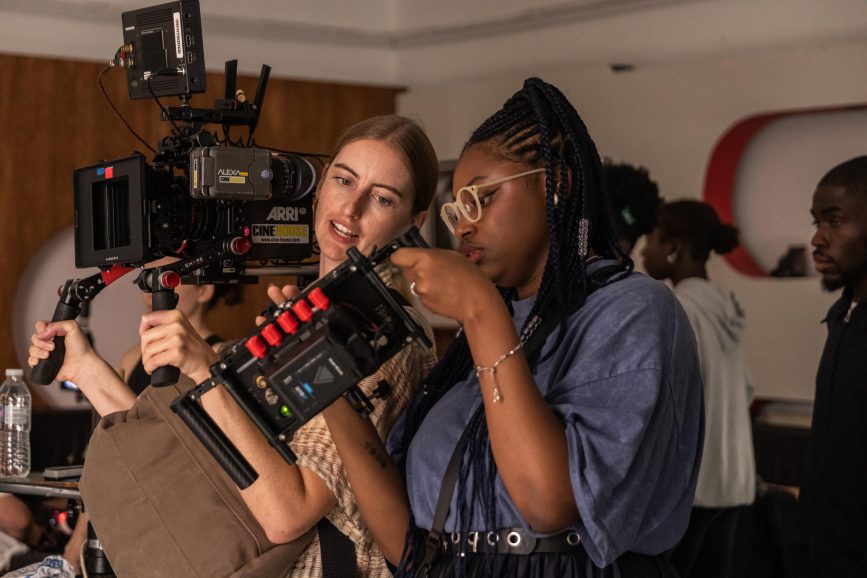
Meet the Black Britain Unspoken 2023 supporters
Mathieu Ajan – founder and artistic director at Bounce Cinema
BC: How is Bounce Cinema supporting BBU?
Mathieu Ajan (MA): We’ve been working really closely with WBD commissioning and production to bring these films to life and to discovery+ audiences. No two days were the same throughout the entire creative process, this created a beautiful space for everyone to learn and push themselves creatively. It was a huge collective team effort which Bounce has been honoured to be a part of.
BC: Why is it important for your organisation to support the programme?
MA: It is vital that we continue to champion Black British storytellers, filmmakers, and creatives – and that is what Black Britain Unspoken is all about. There’s so much talent out there who often don’t have the right networks or financial backing. Supporting programmes like this helps to level the playing field for a new generation of talent.
BC: What lessons did you learn from the process?
MA: Trusting your collaborators and giving them creative freedom to take your work to the next level. We had the privilege of working with such an amazing team from cinematographers, editors and of course the great team at WBD. We were all able to bring our different skills together to really support the directors and their vision.
This project was a really important reminder on the power of keeping the story at the forefront of everything. Filmmaking requires a lot of decision making, sometimes with very little time or resources. You have to be very disciplined and focused on what the heart of your story truly is.
Sometimes less is more. Having constraints forces you to be more creative with your choices and actually allows you to hone into what truly matters. Having something to say as a filmmaker and being a shepherd of the story.
BC: What were your favourite parts of the process?
MA: Filmmaking is a collaborative sport, my favourite part was working closely with the directors to develop their ideas further. They’re all so different in their own unique way and this really reflects in their final films. Being able to approach each project differently and collaboratively and exercise our creative muscles together was really fulfilling.
Daisy Church – senior programme manager, Screen Industries and Mentoring, Media Trust
BC: How is your organisation supporting BBU?
Daisy Church (DC): Media Trust is a longstanding charity partner of Warner Bros. Discovery. For nearly 30 years, Media Trust has worked with our media industry partners to give under-represented communities and talent a stronger voice. We were brought in at the inception of BBU to help WBD reach early-stage Black British filmmakers via our grassroots charity and alumni networks. We initially worked collaboratively during the entire 2022 production cycle, and, in 2023, took on the delivery of the professional development training programme for selected participants to support production of their films.
BC: Why is it important for your organisation to support the programme?
DC: We exist to support underrepresented talent to thrive in the media and creative industries and ensure that the UK screen industries better reflect the make-up of their audience. Initiatives like Black Britain Unspoken are integral to this mission. We are extremely proud to have collaborated with Warner Bros. Discovery on such an impactful and ground-breaking programme.
Dr Asif Sadiq MBE – chief global diversity, equity and inclusion officer, Warner Bros. Discovery
BC: How is Warner Bros. Discovery supporting BBU?
Asif Sadiq (AS): BBU was uniquely created in partnership with WBD’s Employee Business Resource Group (BRG) the Multicultural Alliance, focused on Diversity Equity and Inclusion (DEI), who worked with the UK & Ireland commissioning teams following the death of George Floyd in 2020. It was an important moment to come together and look at how we as a media company could impact change and address some of the diversity challenges in our sector.
DEI is core to WBD’s business strategy, as a company of storytellers, we are dedicated to finding and amplifying diverse talent and diverse stories. With the launch of a second series of Black Britain Unspoken, Warner Bros. Discovery Access, the talent development programme for under-represented creatives, has been able to provide even broader support to our filmmakers which has been so exciting. Through our partnership with Media Trust, the filmmakers were offered professional development and tailored workshops which focused on media training and career progression, alongside the production management and mentorship from Bounce Cinema and Warner Bros. Discovery UK & Ireland.
BC: Why is it important for WBD to support the programme?
AS: BBU is a really important initiative – it has given voice and platform to hugely talented Black filmmakers and brought authentic and inspiring stories to our audiences.
The programme was designed to give access to the full pitch to production experience, not only providing our filmmakers with an opportunity to create and reach audiences, but to hone and develop skills across all aspects of content creation. Industry data demonstrates that Black people remain particularly underrepresented across director, writer and producer roles in the UK, it is through targeted programmes that we can begin to showcase the diverse stories that deserve and need to be told.

